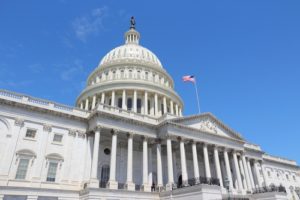
U.S. Sens. Thom Tillis (R-NC) and John Hoeven (R-ND) recently offered a bipartisan bill to close the gaps in the nation’s missing persons databases to ensure better matches between missing persons and the unidentified human remains that are either held at coroners’ offices or disposed of after going unclaimed.
“We must fix our system to have better chances of finding the missing person or giving the family the answers they deserve,” Sen. Tillis said in an Oct. 11 statement.
“This legislation is about ensuring we have a missing persons reporting system that works, so that law enforcement and families can locate and find missing persons,” Sen. Hoeven said. “This is a common-sense fix. Updating and streamlining these databases will be a helpful improvement for officers, families and communities searching for their loved ones.”
The Help Find the Missing Act, S. 5029, also known as Billy’s Law, was sponsored on Sept. 29 by U.S. Sen. Chris Murphy (D-CT) with four original cosponsors, including Sens. Tillis and Hoeven. The bill aims to create more comprehensive missing persons and unidentified remains databases and streamline the reporting process for local law enforcement, according to bill summaries provided by the lawmakers.
If enacted, S. 5029 would authorize funding and increase accessibility to the National Missing Persons and Unidentified Persons System (NamUs). The increased funding would help facilitate data sharing between the NamUs and the National Crime Information Center (NCIC) database of the Federal Bureau of Investigation by providing incentive grants to help facilitate reporting to both systems. The incentive grants program would help states, local law enforcement, medical examiners, and coroners report missing persons and unidentified remains to NCIC and NamUs, according to bill summaries provided by the lawmakers.
“Everyday people go missing in the United States, sometimes without a trace,” said Sen. Tillis. “This legislation fixes the missing persons system creating a more efficient reporting process and a more accessible database for law enforcement.”
Additionally, among several provisions, S. 5029 would expand current law by requiring that missing children be reported to NamUs. They already must be reported to NCIC.
Billy’s Law is named for the 31-year-old son of Janice Smolinski of Cheshire, Conn., who went missing in August 2004 from Waterbury, Conn. While working with law enforcement to locate her missing son, Smolinski faced several systemic challenges, including the separate and uncoordinated federal, state, local, and nonprofit databases, which made it extremely difficult to match missing persons with human remains.
“There are thousands of families like the Smolinskis who are forced to endure the crushing uncertainty of a missing loved one and then end up victimized all over again by a missing persons system that doesn’t allow families to participate in the search for their family member,” said Sen. Murphy. “There’s no excuse for the inefficiencies of the current process, which won’t allow databases to communicate with each other. Billy’s Law is a simple, commonsense fix that I first introduced in the House in 2009, and I won’t stop pushing until we get it done.”
Among the numerous organizations that endorsed the bill are the Consortium of Forensic Science Organizations, the American Academy of Forensic Sciences, the American Society of Crime Lab Directors, the National Association of Medical Examiners, the Fraternal Order of Police, and the Families of Homicide Victims and Missing Persons.



